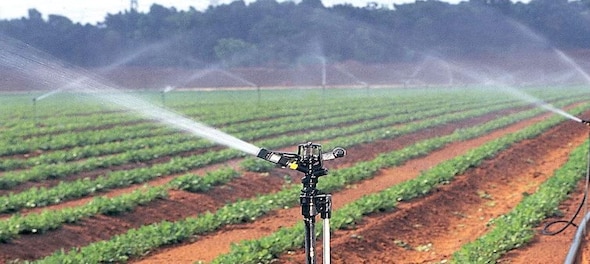
Agriculture in India — like its enterprises — is largely small scale. While we lament the dearth of medium scale enterprises in the manufacturing sector, we observe that the agricultural sector is trying to achieve scale and capacity through collectivisation. Farmers, when they come together to work as one entity in any phase of their production, are referred to as collectives. This move towards collectivism has been observed on the marketing side for a while, in the formation of farmer cooperative marketing societies, and on the production side more recently, as farmer producer organisations (FPOs). These kinds of collectives have been successful in overcoming certain constraints particular to Indian agriculture, such as fragmented land holding and information asymmetry.
While farmer cooperative societies were, and are still popular, the government and well-intending private sector, enthused by the success stories of some FPOs, are providing a thrust towards the formation of more such collectives.
FPOs, with their professional management structures, offer the much-needed handholding to small producers — from getting the right seeds and correct proportion of fertilisers, to finding a market for their produce. They, therefore, have the potential to address some of the key gaps in India’s agricultural supply chain. However, experience from around the world, as well as the case of the Indian manufacturing sector, shows that these structural changes need to be accompanied by innovation and capacity building.
As the world gears up for the fourth agricultural revolution (Lejon and Frankelius, 2015), India needs to carefully assess its capacity, need and social context while choosing its own path towards not just greater agricultural productivity and better farmer welfare but also ecological sustainability. Emerging technologies such as Internet of Things, Artificial Intelligence and Robotics have the capacity to drastically alter how we farm (Wolfert et al., 2017). With our internet penetration at 32 percent, India is still in its early years of adopting such cutting-edge technologies. FPOs, however, have the potential to speed up the uptake of such technologies by creating economies of scale and building the necessary architecture.
FPOs and agri-techs therefore have a mutually complimentary role to play in the Indian agricultural ecosystem. FPOs provide scale and organisational structure for small and medium scale farmers, who by themselves might not be able to effectively participate in the agri-market individually. Agri-techs provide the technical solutions to farming problems such as pests, inefficient water use, labour shortage and lack of market information. For instance, arial pest/plant health monitoring systems can provide early warning signals to FPOs on regions affected. Micro-weather monitoring solutions can give customized alerts to FPOs that they can use to optimise sowing and harvesting.
Scientific drip irrigation installation and management solutions can aid FPOs conserve water and maximise yield. Demand and price prediction techs can provide valuable market signals to FPOs for their cropping decisions. This role for agri-techs has been recognised by the government in its Consultative Paper on India Digital Ecosystem of Agriculture (IDEA). However, for agri-techs and FPOs to symbiotically work together, funding for agri-techs need to catch pace with that for FPOs.
There are some key differences in the type, tenure, and mode of funding for FPOs and agri-techs. FPOs, being business entities, require early funding for their formation and some secondary funding for their upkeep in the early years till they break even and turn profitable. Technology funding generally does not follow the same pattern. Funding innovative technology often involves ambiguous overheads, longer turn — arounds and uncertain product outcomes. However, many agri- technologies relevant to Indian agriculture have already been piloted, tested and marketed in the advanced world.
What India needs now is a concerted effort to locally replicate these technologies for the Indian context. This requires building an ecosystem of problem-solving and innovation that successfully identifies opportunities and gaps in the agricultural value chain. It also of course needs capital that is substantial, long-term and flexible.
Focusing on organisational changes (collectivisation) to solve some of the structural problems in Indian agriculture is reasonable. However, India also needs to give due importance to some of the systemic innovations in food production that are happening around the world and their potential impact on how we farm in India. Doubling of farmers’ income is now a policy priority. For it to become a reality, we also need to consider technological innovations and the ways to take them to our farmers alongside other support mechanisms.
Policy decisions therefore need to balance the need for immediate redressal of current problems and a futuristic vision for an agile and sustainable farming ecosystem. For Indian agriculture, with its needs that are unique to each region and geography, there is no one-size-fits-all solution. Here, agricultural technologies, that aid and support FPOs, can enable farmers earn their fair share from the value chain while also acting as a much-needed impetus to the sector, possibly spearheading its revival and sustainability.
—With inputs from Prof. Dr. Rakesh Arrawatia, Institute of Rural Management Anand
— The author, Priyadarshini Ganesan, is Senior Research Associate with the Household Finance Research Initiative at Dvara Research. Views expressed are personal
(Edited by : Ajay Vaishnav)
Check out our in-depth Market Coverage, Business News & get real-time Stock Market Updates on CNBC-TV18. Also, Watch our channels CNBC-TV18, CNBC Awaaz and CNBC Bajar Live on-the-go!



